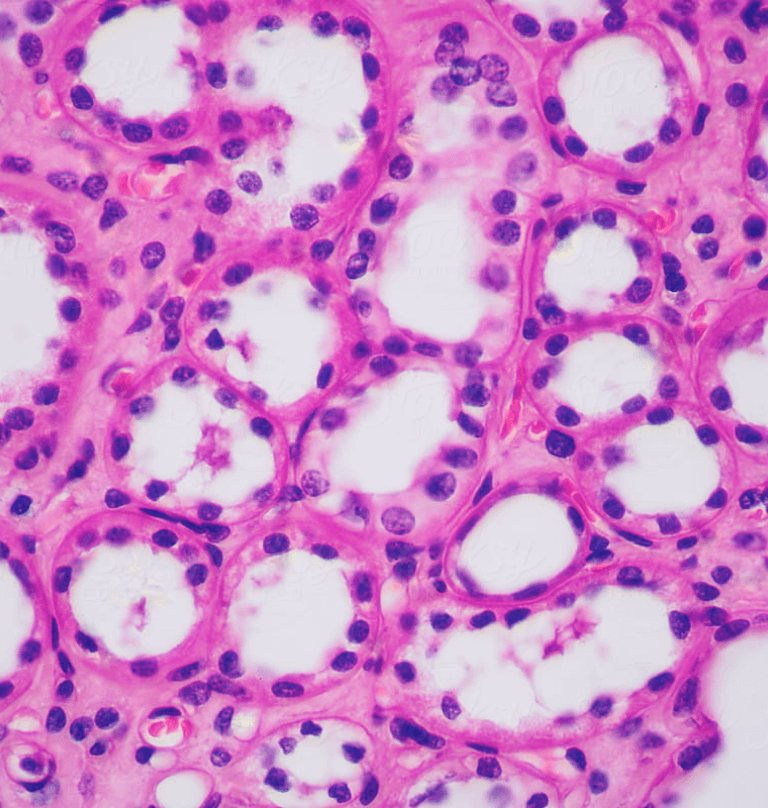What's New
How Pharmacists Use Pharmacogenetics (PGx) to Improve Patient Outcomes

How Pharmacists Use Pharmacogenetics (PGx) to Improve Patient Outcomes
Pharmacists have always been a critical cornerstone of our healthcare system, playing pivotal roles in medication management, patient education, and drug safety. In recent years, advances in pharmacogenetics (PGx)—the study of how genes affect an individual's response to medications—have transformed the way a growing number of pharmacists approach personalized medicine. With this growing field, pharmacists are uniquely positioned to provide more precise and effective patient care. In this article, we explore how pharmacists use PGx to improve patient outcomes and how they're using it to shape the future of healthcare.
The Evolving Role of Pharmacists in Healthcare
Traditionally, pharmacists have focused on optimizing medication safety and effectiveness. In community and other settings, pharmacists typically:
- Review prescriptions for drug interactions, allergies, and dosing appropriateness.
- Provide direct patient care through counseling, side effects management, adherence strategies, and monitoring medication use.
- Prescribe medications under certain conditions, such as smoking cessation medications or renewals of ongoing prescriptions (depending on the province).
- Compound medications to create tailored formulations for unique needs, or when specific formulations are unavailable due to back-orders.
- Recommend and administer vaccines like the flu or COVID-19 shots.
In recent years, as Dr. Ashwin Juneja, Inagene's Clinical Affairs Lead and Pharmacist, notes, the scope of pharmacists' practice has been expanding. Pharmacists now manage more complex tasks such as prescribing under greater circumstances, interpreting and actioning pharmacogenetic test results, and ordering and interpreting lab tests in some provinces. This increased scope reflects a deeper integration of pharmacists into the multidisciplinary healthcare team.
The Role of Pharmacogenetics in Personalized Care
Pharmacogenetics takes into account the unique genetic makeup of each patient, allowing for more tailored and effective medication regimens. While the traditional approach to prescribing medication considers factors like age, weight, sex, and organ function, PGx adds another critical layer: a patient’s genetic predisposition to medication response.
Dr. Juneja emphasizes the importance of this shift: "When we assess medication options, we look at a variety of factors. Adding genetics to the mix helps us get closer to ensuring favourable outcomes, reducing safety risks, and improving the likelihood of effectiveness." This individualized approach can help prevent adverse drug reactions (ADRs) and therapeutic failures, two major issues in medication management today.
The Impact of Pharmacogenetics on Patient Outcomes
The statistics surrounding the effectiveness of pharmacogenetics are compelling. For example, almost half of all adverse drug reaction (ADR) hospital admissions are potentially preventable. Pharmacogenetic testing can help reduce these risks by identifying patients who may have a genetic predisposition to side effects, major toxicities, and ineffectiveness.
In Canada, there is growing evidence supporting the integration of PGx into routine pharmacy practice, including:
- Improved drug efficacy: Studies have shown that pharmacogenetic-guided treatment increases the likelihood of therapeutic success by matching the right drug to the right patient at the right dose.
- Reduced ADRs: PGx has been shown to reduce ADRs by up to 30%, especially in medications for pain, mental health, and cardiovascular conditions.
- Cost savings: Reducing ADRs and improving drug efficacy through pharmacogenetics can also reduce healthcare costs. In Canada alone, the annual cost of ADRs has been estimated to be over $13 billion.
Pharmacogenetics is not just about reducing harm, though. It also ensures that patients get the most benefit from their treatments. For example, when it comes to mental health, where trial-and-error methods are often utilized, pharmacogenetic testing can expedite the process of finding the right antidepressant, thereby improving patient quality of life.
The Pharmacist's Role in Pharmacogenetics
Pharmacists, as medication experts, are ideally suited to help implement pharmacogenetic testing into clinical practice. As Dr. Juneja explains, "Pharmacists are already adept at assessing medication appropriateness and tailoring drug regimens based on patient needs. Adding PGx to their toolkit allows them to provide an even higher level of personalized care."
Here are some ways pharmacists are integrating PGx into their practice:
-
Help Interpret PGx Results: Pharmacists can review pharmacogenetic test results to understand how a patient's genetic profile may impact drug-response. This helps them recommend adjustments to the drug used, dosing, and overall treatment plans.
-
Provide Counseling for Patients: After receiving PGx results, pharmacists can help educate patients about how their genes may affect their medication responses. This empowers patients to make informed decisions about their treatments moving forward and in discussion with other healthcare providers.
-
Collaborate with Healthcare Providers: Pharmacists can work closely with physicians and other healthcare professionals to develop and adjust treatment plans based on PGx data. This interdisciplinary approach ensures that medication choices are aligned with the patient's genetic makeup and overall health status.
-
Monitor Treatment Outcomes: Pharmacists can follow up with patients after initiating a pharmacogenetically guided treatment plan to monitor effectiveness and adverse reactions. This continuous monitoring helps to optimize patient care and improve health outcomes.
The Future of Pharmacogenetics in Pharmacy
The future of pharmacy practice will likely see an even greater role for PGx, driven by advances in technology, increasing accessibility to genetic testing, and growing awareness among healthcare professionals and patients.
In Canada, companies like ours are leading the way by offering comprehensive pharmacogenetic testing panels. As Dr. Juneja notes, “We at Inagene test for more variants in key genes than others, to the best of our knowledge, which helps improve health equity for diverse groups.” This allows us to help pharmacists serve a wider range of patients more effectively. We also ensure that the PGx reports we provide clients are actionable, which they can share with their healthcare teams so they can consider the results and evidence-based recommendations.
Moreover, as healthcare shifts towards a more patient-centered model, pharmacists’ roles in interpreting PGx results and guiding treatment decisions will likely continue to expand. With continued advancements in the field, PGx has the potential to become a standard part of pharmacy care in Canada and beyond.
Pharmacogenetics is Helping Transforming Pharmacy Practice for Safer, Personalized Care
Pharmacogenetics is supporting the way pharmacists provide care, making treatments safer, more effective, and personalized. By embracing PGx, pharmacists are helping to ensure that medications are tailored to each patient’s unique genetic profile, ultimately improving outcomes and enhancing patient safety. As Dr. Juneja puts it, “Pharmacogenetics is really about supporting better patient outcomes—through reduced safety risks, improved likelihood of effectiveness, or both.” The integration of this science into everyday pharmacy practice marks an exciting evolution in the healthcare landscape.
Disclaimer: This website has been developed by Inagene Diagnostics Inc for information purposes only. It does not provide medical advice, diagnosis, treatment or care. If you have a health problem, medical emergency, or a general health question, you should contact a physician or other qualified health care provider for consultation, diagnosis and/or treatment. Under no circumstances should you attempt self-diagnosis or treatment based on anything you have seen or read on this website. For more information about how to use this site, please see our Terms of Service.
References
